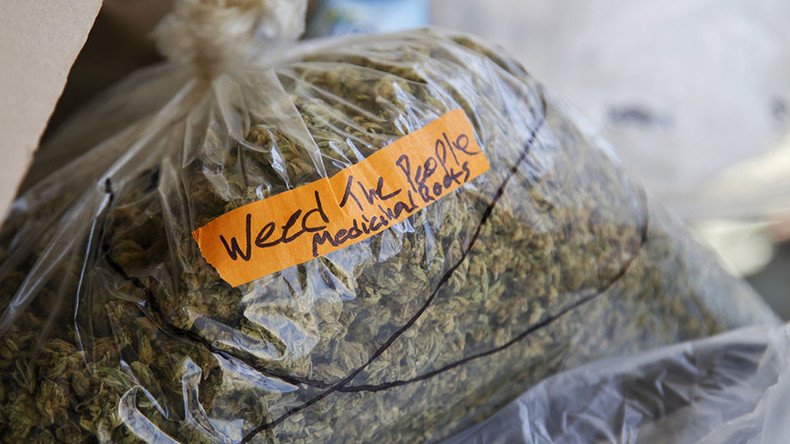‘War on drugs’ has failed, decriminalize now – UK health experts

Britain’s two leading health bodies are calling for the personal possession and use of drugs to be decriminalized, arguing the ‘war on drugs’ has done more harm than good.
The Royal Society for Public Health and the Faculty of Public Health say drug misuse is a health issue, not one for the courts and prisons, where people are not being helped to kick their habit.
They say criminalizing users leads to long-term harm such as exposure to hard drugs in prison, the breakup of families and loss of employment, and deters them from seeking medical help.
“We have taken the view that it is time for endorsing a different approach,” said Royal Society chief executive Shirley Cramer.
The society’s report published on Thursday, ‘Taking a New Line on Drugs,’ calls on MPs to change drug policy, arguing current laws are not working.
Under the proposal, people caught with drugs for personal use would be referred to a treatment or awareness program, not put in jail.
However, the society says drug dealers and producers should still be punished.
“We think people who are dealing drugs and the producers and suppliers absolutely should be prosecuted,” Cramer told the Guardian.
“But for people who have got a drug problem, why treat them differently from someone who has an alcohol problem or an obesity problem?”
The report also recommends more drug education in schools, saying it should be mandatory to teach children as young as five about drugs and addiction.
“Drugs education must be interactive and take an approach that focuses more broadly on developing resilience, self-efficacy, impulse control and life skills in relation to risk-taking behavior,” it says.
The experts also want responsibility for drug policy to be moved from the Home Office to the Department of Health, to be aligned more closely with alcohol and tobacco strategies.
The society commissioned a poll of more than 2,000 UK adults and found more than half (56 percent) agreed that drug users in their local area ought to be referred for treatment rather than charged with a criminal offense. Fewer than a quarter (23 percent) disagreed.
Faculty president Professor John Middleton says it’s time to reframe the global approach to illicit drugs.
“The imbalance between criminal justice and health approaches to illicit drugs is counterproductive,” he told the Guardian.
“Criminalization and incarceration for minor, non-violent offenses worsen problems linked to illicit drug use, such as social inequality, violence and infection. Possession and use should be decriminalized and health approaches prioritized.”
A Home Office spokesperson told the newspaper: “The UK’s approach on drugs remains clear – we must prevent drug use in our communities and support people dependent on drugs through treatment and recovery.
“At the same time, we have to stop the supply of illegal drugs and tackle the organized crime behind the drugs trade.”
The spokesperson said there had been a drop in drug misuse over the last decade and more people are recovering from dependency now than in 2009/10.
The government’s new drug strategy is expected to be released after the EU referendum.














